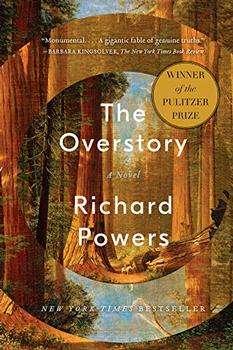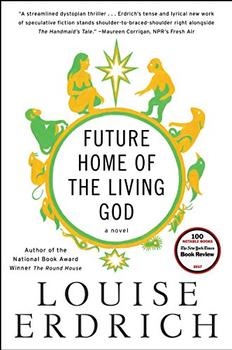Summary | Excerpt | Reviews | Beyond the book | Read-Alikes | Genres & Themes | Author Bio

We've all heard the news: California is dry. Bone dry. The snow packs in the Sierras are gone. The gold, fame and citrus that drew in the pioneers are a thing of the past, mere flashes in the pan. After all, rugged individualism can only get you so far when you have nature's brutality to contend with. Claire Vaye Watkins imagines California as an even more depleted landscape in her debut novel, where citizens have been packed off to internment camps in other states, with the stragglers surviving on rations of cola and little else.
Luz Dunn, an ex-model, and her boyfriend Ray, are among those left behind, camped out in an abandoned home, living day to day with no fixed goals in mind for the future. That future hits the couple squarely in the face when they find a toddler wandering around at a rave in the canyon. Luz and Ray abduct the girl, Ig, convinced it's the only way to save her. Suddenly life has purpose: they have to move, to throw roots down in a place with resources, opportunities. Desperate times, as they say, call for desperate measures. Unfortunately, as they try to make it for greener pastures, they run into the very desert that has slowly been taking over the West, rendered into vividly menacing form by Watkins. Amargosa, a giant sand dune (now so large it's the size of a sea), engulfs entire cities and encampments in its wake with the rapidly advancing speed of a glacier.
Yet on the very periphery of this slowly advancing juggernaut of destruction lives a small band of nomads, firmly believing that the redefined extreme parched landscape is the New World's Holy Land, an idea encouraged by their charismatic, if delusional, leader, Levi Zabriskie. Like the rest, Levi had come to California chasing a dream and here, at the edge of the world, he sets up a different kind of mirage for the believing: there is water, he tells his followers, and he provides them with proof. His methods might be veiled but the miracles he delivers are enough to grant him a somewhat faithful, if occasionally skeptical audience. Will Levi be Luz's family's deliverance too?
With the crackling prose that she delivered so brilliantly in her debut collection of short stories, Battleborn, Watkins yanks the ground out from under our feet, exposing us to every vulnerability that this story so resolutely delivers. When all else is gone, what do we thirst for most? The answers to that question might not reveal any profound new truths, but Gold Fame Citrus succeeds in the acutely visceral way in which they are delivered. Levi, the de facto messiah, certainly seems to have struck gold in the answers preying on vulnerabilities, meshing them to his own selfish ends. He meets his match in the remarkable Luz, whose growth over the course of the novel is a delight to watch.
The pulsating, fluid desert landscape is the main star here, the giant dune sea, a monster that is transfixing in its power. When Watkins started the novel five years ago, many of the wildest things she could imagine then are terrifyingly real now, as she said in an interview for Vogue: "When I first conceived of the book I thought it would be real out-there. Like, super speculative, oddball, exaggerated, grandiose, not realism at all. But what happened again and again was I would think of some crazy thing that could happen, like: What if there was a drain installed at the bottom of Lake Mead and they drained the lake like a bathtub? And I would discover, in fact, that project is nearing completion. Or, what if we dynamited the sky to try to get rain to fall? And then I would find out, Oh, yeah, something very similar happened in the Dust Bowl years, or this university got a grant to try to do this. So what I thought was crazy and super imaginative turned out to be already in swing in a way, and then I had to reckon with the fact that I was writing a more realistic book than I thought I was."
This, the fact that all the desiccation that Watkins conjures could just be right around the corner, that it is all being reconfigured so dramatically, that this story could possibly be more anchored in reality than even Watkins imagined...this is the best (or worst, depending on how you see it) kind of silent terror that haunts these pages.
![]() This review was originally published in The BookBrowse Review in October 2015, and has been updated for the
October 2016 edition.
Click here to go to this issue.
This review was originally published in The BookBrowse Review in October 2015, and has been updated for the
October 2016 edition.
Click here to go to this issue.

If you liked Gold Fame Citrus, try these:

by Richard Powers
Published 2019
"The best novel ever written about trees, and really just one of the best novels, period."
—Ann Patchett

by Louise Erdrich
Published 2018
A startling portrait of a young woman fighting for her life and her unborn child against oppressive forces that manifest in the wake of a cataclysmic event.




Chance favors only the prepared mind
Click Here to find out who said this, as well as discovering other famous literary quotes!
Your guide toexceptional books
BookBrowse seeks out and recommends the best in contemporary fiction and nonfiction—books that not only engage and entertain but also deepen our understanding of ourselves and the world around us.